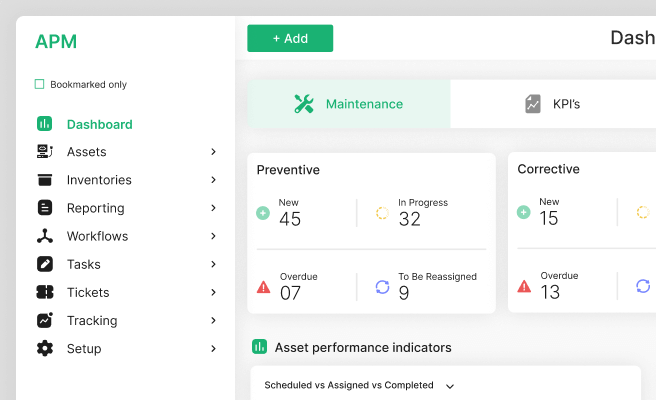Net Promoter Score
<p>Net Promoter Score (NPS) is a key metric used to gauge customer loyalty and satisfaction. It is derived from a single survey question: "How likely are you to recommend our product or service to a friend or colleague?" Respondents rate their likelihood on a scale of 0 to 10, and based on their scores, they are categorized into three groups: Promoters (9-10), Passives (7-8), and Detractors (0-6).</p>
<p>Understanding the Net Promoter Score is crucial for companies aiming to enhance customer experience and drive growth. A higher NPS indicates strong customer loyalty, which can lead to increased referrals and reduced churn rates. Companies like Apple and Tesla have leveraged high NPS to build a loyal customer base and achieve market success.</p>
<h2>Calculating and Interpreting NPS</h2>
<p>To calculate NPS, subtract the percentage of Detractors from the percentage of Promoters. The resulting score can range from -100 to 100. For example, if 70% of respondents are Promoters and 10% are Detractors, the NPS would be 60.</p>
<p><b>Example Calculation:</b></p>
<ul>
<li>Promoters: 70%</li>
<li>Passives: 20%</li>
<li>Detractors: 10%</li>
<li>NPS = 70% - 10% = 60</li>
</ul>
<h2>Importance of NPS for Visionary Founders</h2>
<p>For Visionary Founders in climate-tech companies, NPS is an invaluable tool for understanding customer satisfaction and identifying areas for improvement. High NPS scores build credibility with partners, talent, and investors, showcasing the company's impact and customer loyalty.</p>
<p>Given the specialized nature of climate-tech, where solutions are often complex and highly technical, maintaining a high NPS can differentiate a company from its competitors. For example, a climate-tech company specializing in carbon capture could use NPS feedback to refine its technology and improve user experience, thereby strengthening its market position.</p>
<h2>Challenges and Limitations</h2>
<p>While NPS is a powerful metric, it has its limitations. It provides a high-level overview of customer sentiment but doesn't offer detailed insights into specific issues. Moreover, cultural differences can influence how respondents rate their likelihood to recommend.</p>
<p>To address these challenges, companies should complement NPS with other feedback mechanisms, such as in-depth surveys, user interviews, and focus groups. This holistic approach ensures a comprehensive understanding of customer needs and experiences.</p>
<h2>Actionable Steps to Improve NPS</h2>
<p>Improving NPS requires a strategic approach focused on enhancing customer experience. Here are some actionable steps:</p>
<ul>
<li>Regularly collect and analyze NPS data to identify trends and areas for improvement.</li>
<li>Engage with Detractors to understand their pain points and address their concerns.</li>
<li>Leverage positive feedback from Promoters to reinforce successful practices and share testimonials.</li>
<li>Implement changes based on feedback and monitor the impact on NPS over time.</li>
</ul>
<p>For instance, a sustainable product design company could use NPS feedback to optimize its design processes, ensuring that the final products meet customer expectations and sustainability goals. Tools like <a href="https://www.qualtrics.com" style="color:#2896FF; text-decoration:underline;">Qualtrics</a> or <a href="https://www.surveymonkey.com" style="color:#2896FF; text-decoration:underline;">SurveyMonkey</a> can be used to streamline the collection and analysis of NPS data.</p>
<h2>Real-World Example: Tesla</h2>
<p>Tesla is a prime example of a company that has successfully used NPS to drive growth. Known for its high NPS, Tesla continuously collects feedback from its customers to improve its products and services. This customer-centric approach has helped the company build a loyal customer base and achieve significant market share in the electric vehicle industry.</p>
<p>In the climate-tech sector, companies can draw inspiration from Tesla's NPS strategy to enhance their own customer experiences and drive business growth.</p>
<h2>Conclusion</h2>
<p>Net Promoter Score is a vital metric for companies looking to measure and improve customer loyalty. For Visionary Founders in the climate-tech sector, leveraging NPS can provide valuable insights into customer satisfaction and highlight areas for growth. By focusing on improving customer experience and addressing feedback, companies can enhance their NPS, build credibility, and achieve long-term success.</p>
<p>Learn more about improving your <a href="https://www.netpromotersystem.com" style="color:#2896FF; text-decoration:underline;">NPS strategies</a> and driving customer loyalty.</p><p>To understand the power of design across industries and sectors, view our diverse portfolio of works. <a href="https://www.whatifdesign.co/work" style="color:#2896FF; text-decoration:underline;">View our portfolio</a>.</p> <p>Increase user engagement that converts your demos into sales. Optimise your UX strategies with our audits.
<p>Fill out the <a href="https://tally.so/r/n97pxQ" style="color:#2896FF; text-decoration:underline;">UX Audit form</a> to get started. Ready to discuss your needs? <a href="https://cal.com/akhilak/what-if-design?duration=25" style="color:#2896FF; text-decoration:underline;">Book a consultation call</a> with us today.</p></p>

Let's scale your impact with great design.
Free consultation, no sales pitch
Thank you! Your submission has been received!
Oops! Something went wrong while submitting the form.
Let’s talk
Nothing great is built alone.
Let’s connect about your vision, our work and how we can collaborate.
Get in touch

